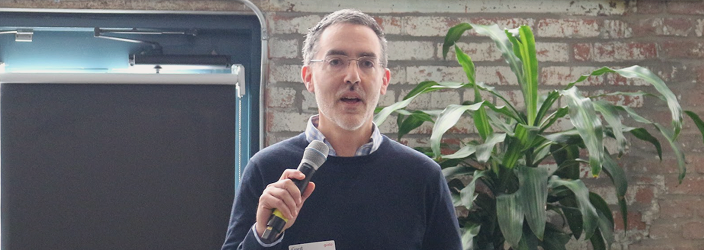Responsible Innovation Founders Summit 2022
The Founders Summit convenes the best early-stage founders, funders, and other leaders to share their experiences using responsible innovation to scale world-class companies.

Responsible Innovation Summit 2022
Responsible Innovation Labs and Society Initiative co-hosted the Founders Summit, which brought together nearly 500 global tech leaders in San Francisco, New York, and online.
Sessions included:
Beyond the Tech: Innovating Responsibly Across Your Company Hear from leaders who have built structures to bring responsible innovation to every function across their company to support growth and long-term value. Speakers Include: Toyin Ajayi, MD, Rachel Gillum, PhD, Laurie Segall
Responsible Innovation for Venture Capital: How can we shape an industry to build and scale responsibly? Venture-backed technology is a powerful force in our world — properly wielded, a true superpower for humanity. At the same time, the industry hasn’t done enough to guard against its downsides. How can investors do more? Speakers: Clara Brenner, Quentin Clark, TIm Wang, Laura Weidman Powers, Jon Zieger
Responsible Innovation for Early-Stage Founders: What can we really do? What are the concrete tools and tactics available to founders for building good into the DNA of your company? Hear what founders of early-stage companies can reasonably do. Speakers: Raina Kumra, Claire Shorall, Chapman Snowden, Lyel Resner
What can we do differently to advance inclusive prosperity? Technology reshapes how we work and who benefits from our economy. What does it look like to be thoughtful about how we build technology and teams? Speakers: Shaily Barawai, Lexi Reese, Matt Schulman, Adrian Haro
Big Questions in Emerging Tech To build the future we want, we have to optimize for intended consequences and guard against unintended ones. What should we be asking today to support the world we want tomorrow? Speakers: Safiya Umoja Noble, PhD, Bilal Zuberi, Justin Hendrix
Building to Endure: The Business Case for Stakeholder Value What do tech companies with a strong sense of mission and centered stakeholder value look like? Hear how the stakeholder value approach has led to more differentiated products and resilient businesses. Speakers: Susa Mac Cormac, Josh Reeves, Rachel Romer, Jon Zieger
Founder Stories: Responsible Innovation Tools and Methods Hear how founders put responsible innovation into practice — from data ethics to Product decisions to board management. Speakers: Andrew Zolli, Garrett Smiley, Risto Lahdesmaki, Lauren Peate, Vivek Katial, Luisa Reyes
Check out the Founders Summit 2022 sessions
Tools + Frameworks
Resources to build and scale responsibly.
- Responsible Innovation Primer for Founders
- Consequence Scanning
- Ethical Explorer
- 5 Tips for Building an Equitable Early Stage Company

